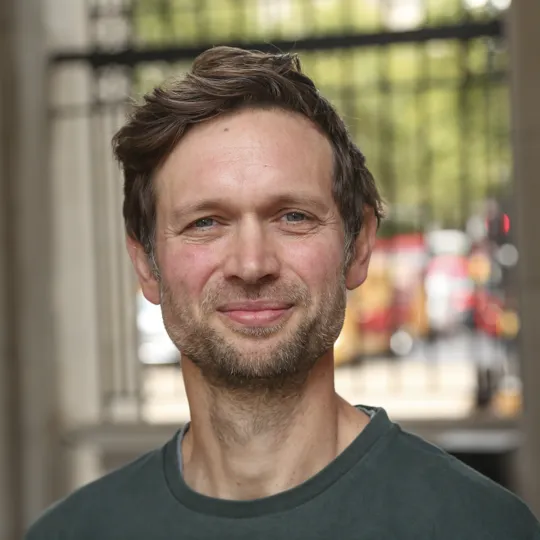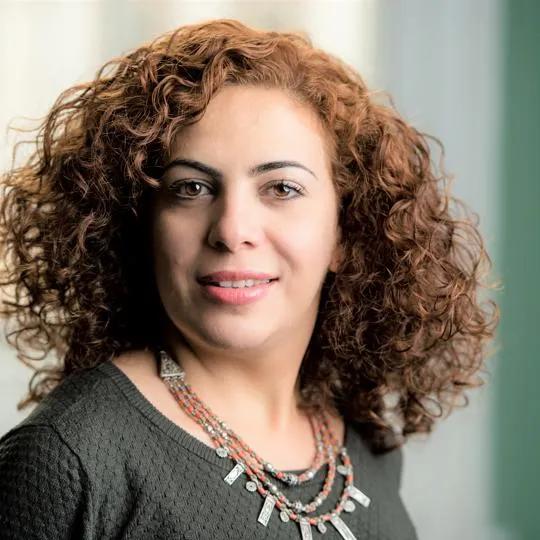A major highlight of the visit was the public engagement event which included the ceremonial handover of the ICCROM-Sharjah Grand Award for Good Practices in Cultural Heritage Conservation to the Ghadames City for Promotion and Development Authority (GCPDA), recognising the inclusive, community-driven model developed through MaLiCH.
Dr Will Wootton, Reader in Classical Art and Archaeology
19 June 2025
Managing Libya's Cultural Heritage project celebrates milestones
As the Managing Libya’s Cultural Heritage (MaLiCH) project, funded by ALIPH (the International Alliance for the Protection of Heritage), enters its final phase, the project team has concluded a major round of fieldwork across Libya, marking a significant moment in the university’s global engagement in cultural heritage preservation in conflict-affected regions.

Between April and May 2025, King’s researchers – alongside Libyan and international partners – undertook a programme of on-site work spanning the UNESCO World Heritage Sites of Sabratha, Ghadames, and Leptis Magna, as well as stakeholder meetings in Tripoli with the Director of the Department of Antiquities (DoA). These activities form part of a multi-year effort to safeguard cultural heritage through community-led conservation, capacity building, and innovative interpretation strategies.
At Sabratha, the team led the protective reburial of the so-called 'Office Baths', a Roman-period complex with important mosaics which are have deteriorated significantly due to their long exposure to the coastal environment. The intervention was undertaken in close collaboration with the DoA and with students participating from the Department of Archaeology at the University of Sabratha. The local archaeology students joined as volunteers, gaining practical experience in archaeological conservation and demonstrating the project’s commitment to local capacity building and knowledge transfer.
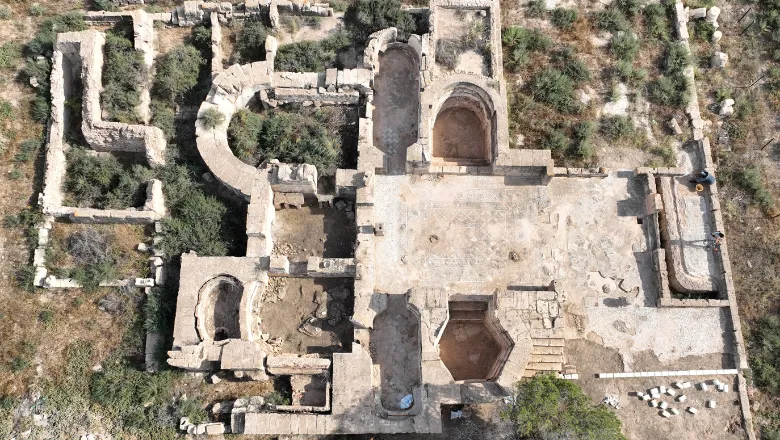
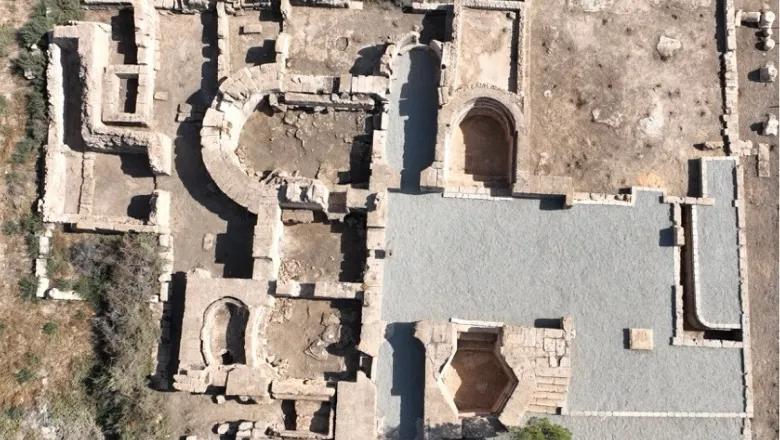
After completing the reburial, the team travelled south to the oasis town of Ghadames, one of Libya’s most iconic heritage sites that is entirely made by mud brick. There, the team marked the official opening of the new Visitor Centre, a key outcome of the MaLiCH project. Housed in a restored mudbrick building in the heart of the Old Town, the centre now serves as a vibrant cultural space showcasing exhibitions on Ghadames’ architecture, crafts, and intangible heritage – including the revival of Zanjafour wall paintings, a traditional decorative art form led by local women artists. The initiative aims to revive cultural practices and highlights the role of women in heritage storytelling and transmission.
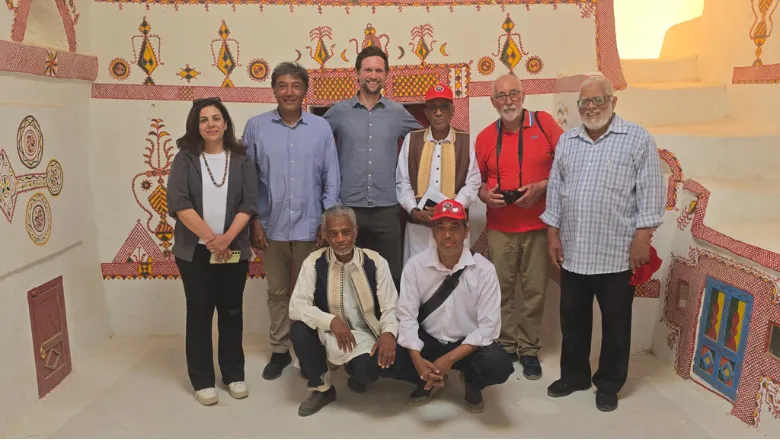
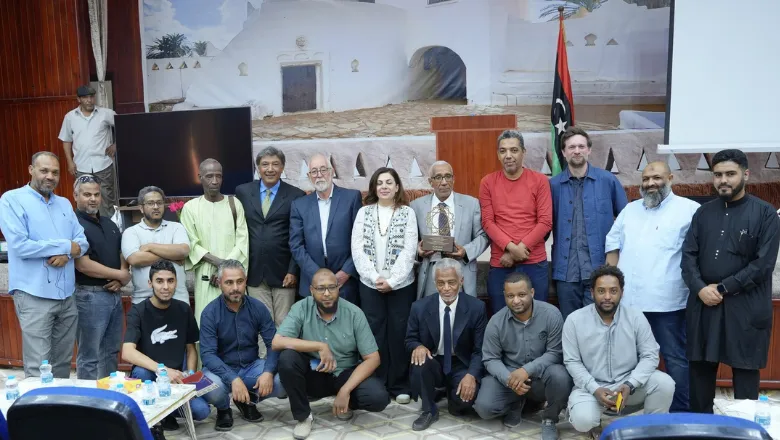
During the event, project team Dr Will Wootton, Dr Hiba Alkhalaf, Dr Hafed Walda, and Professor Alaa El-Habashi were honoured with certificates of appreciation for their five years of sustained work on training, rehabilitation, advocacy, and heritage activation. Their contributions have also been central to supporting efforts to remove Ghadames from the UNESCO List of World Heritage in Danger.
During our visit, I had the privilege of meeting with the Ghadames Women’s Training Centre, where we began conversations about how to foster intergenerational learning and expand grassroots-led heritage programmes that truly reflect the voices and knowledge of local women,”
Dr Hiba Alkhalaf, Postdoctoral Research Associate
In Tripoli, the team carried out additional documentation and strategic planning sessions focused on sustaining heritage initiatives in urban contexts. Meanwhile, meetings with colleagues and collaborators from Leptis Magna centred on assessing the progress of ongoing work at the so-called Hunting Baths and developing strategies to mitigate the growing impact of climate change on the site. These discussions helped identify shared priorities and laid the groundwork for joint efforts to safeguard and reactivate one of Libya’s most iconic archaeological landmarks.
The MaLiCH project marks a milestone in community-led heritage preservation and inclusive cultural recovery.
The most powerful part of this work, is not the restored buildings or the awards. It’s the people. It’s sitting with the women who painted those walls. It’s watching students dig to protect a mosaic. It’s seeing heritage become a shared responsibility, a source of pride, and a path to healing. Most of all, it’s witnessing the local community come together- celebrating the achievements of their local authorities in partnership with global collaborators and recognising the tireless efforts of the volunteer teams who brought it all to life.”
Dr Hiba Alkhalaf, Postdoctoral Research Associate
It has been a huge honour to work with the DoA and GCPDA alongside the local communities on such fantastic and transformative projects. The MaLiCH team is very excited about the new life that the rehabilitation of the Visitor Centre will bring to the Old Town of Ghadames. We are also incredibly proud of the achievements in Sabratha. It is the second reburial in Libya and the first to conserve a whole archaeological complex. Although the project is coming to a close, the team remains focused on working with the DoA at Lepcis Magna to deliver the projects there and continuing the collaboration with the GCDA in Ghadames to maximise the potential of the Visitor Centre.
Dr Will Wootton, Reader in Classical Art and Archaeology

